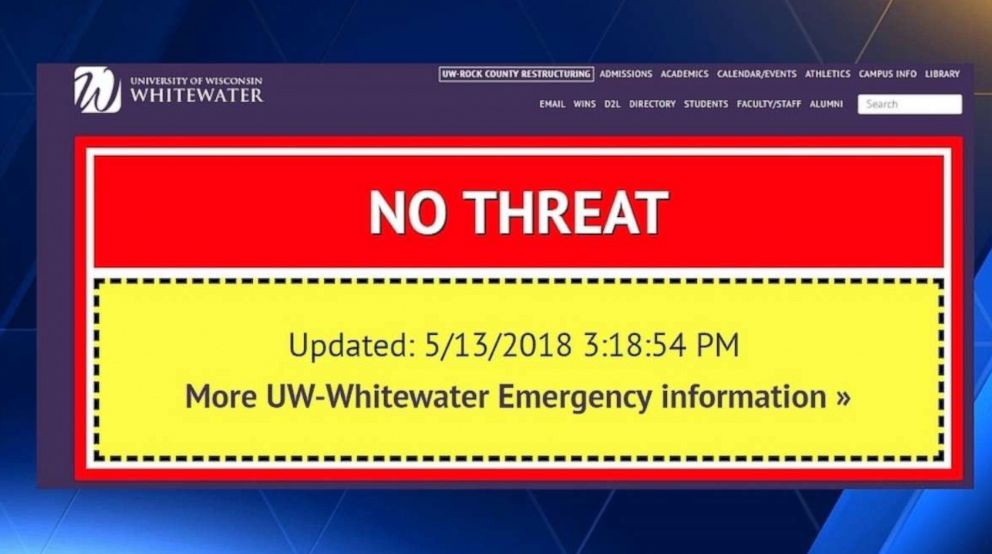University of Wisconsin tells students to ‘run, hide, fight’ in false emergency alert
UWW mistakenly sent an “active alert” email at around 3 p.m. on Sunday.
The University of Wisconsin gave students a scare on Sunday after it mistakenly sent an email that urged everyone on campus to "run, hide, fight."
Officials on the university’s Whitewater campus sent the "active alert" email at around 3 p.m. on Sunday, sounding the school’s emergency alarm system, even though there was no actual threat.
"There is an active threat to life safety on campus, RUN, HIDE, FIGHT," the University of Wisconsin-Whitewater wrote in the email.
The university issued a correction about seven minutes later, saying there was no threat to safety and promising to offer more information later.
University Police Services Chief Matt Kiederlen apologized for “any undo stress” the initial email may have caused.
"We apologize for any undo stress this may have caused," Kiederlen said in a statement. "We will continue to investigate what happened and provide further information as it becomes available."
The misfire sent the campus into a frenzy, according to one witness, who said she saw students and faculty members running in fear after the first email went out.
"Welcome to Whitewater, where you think you are going to die and then they go 'just kidding,'" one student wrote in a Twitter post Sunday.
"Yeah thanks Whitewater. I had to call my mom ON MOTHER’S DAY because there was an THREAT to life and safety," another student tweeted.

One witness said she thought there was an active shooter on campus.
"Whitewater, you can't have the active shooter alarms going off on campus, send an email saying that there is 'active threat to life safety,' and then send another email being like 'just kidding, technical issue' -- especially in this day and age," the witness said in a tweet.
The university attributed the false alarm to a "technical issue with the system," according to its statement. Kiederlen said his department would investigate the issue, but he did not offer any additional details.




